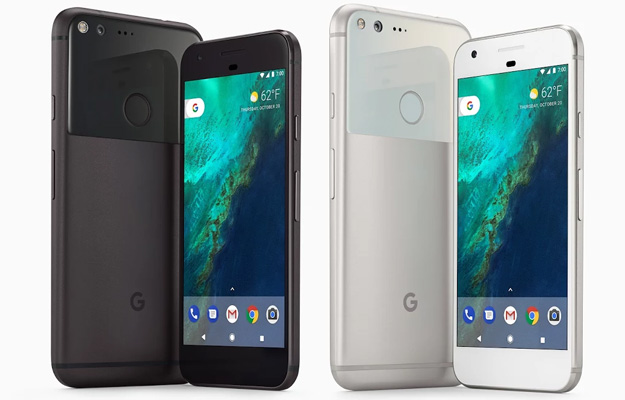Google Nabs Top Apple Silicon Architect To Lead Custom Chip Development For Next Gen Pixel
There is only so much top-level talent to go around in Silicon Valley. That is part of the reason why engineers and technology bigwigs make obscene amounts of money. It is also why poaching employees from competitors is so common. This happened yet again with Google convincing Manu Gulati, a veteran chip architect who had been in charge of Apple's chip development efforts for nearly a decade. to jump ship.
According to Gulati's updated LinkedIn profile page, he now carries the title of Lead SoC Architect at Google. It is the latest title in what is an impressive resume that includes being a member of the technical staff at AMD, followed by serving as an engineering manager and later a senior engineering manager at Broadcom before moving onto Apple in 2009 and now Google, where he will head up the company's chip design efforts.

Gulati brings with him plenty of experience in SoC design. He played a major role in designing custom silicon for Apple's iPad, iPhone, and Apple TV products, which started with his arrival—Apple started using its own chips in 2010 starting with the A4 SoC found in the original iPad. Apple has been using its own custom silicon ever since, which has proven competitive with chips produced by its rivals, such as Samsung.
Google took a different approach with its home brewed Pixel phones. Rather than create its own chip, Google shoved Qualcomm's Snapdragon 821 SoC inside its flagship smartphones. Rumor has it that Google's second generation Pixel and Pixel XL handsets will also use a chip designed by Qualcomm—namely, the Snapdragon 835. It's a speedy SoC, but a custom chip would afford additional optimizations specific to Google's future handsets. It would also separate the Pixel line from competing smartphones that use the same silicon inside.
That is where Gulati comes into play. it is a two-part victory for Google, in that it now has an experienced veteran to lead its chip design efforts, while taking away a major asset from Apple. And in case anyone might underestimate Gulati's chip design prowess, Apple has filed 15 chip-related patents where Gulati is credited as the inventor.
The move by Google is also one that is well-timed. We are entering an era of artificial intelligence and machine learning. Neither of those are new technologies, but they've become increasingly popular over the past year or so with today's devices sporting advanced capabilities, such as voice-activated digital assistants, image recognition, and so forth.
It will take some time for Google's latest hire to pay dividends. However, it is a safe bet that the eventual third generation of Pixel handsets will see Gulati's fingerprints inside.
According to Gulati's updated LinkedIn profile page, he now carries the title of Lead SoC Architect at Google. It is the latest title in what is an impressive resume that includes being a member of the technical staff at AMD, followed by serving as an engineering manager and later a senior engineering manager at Broadcom before moving onto Apple in 2009 and now Google, where he will head up the company's chip design efforts.
Gulati brings with him plenty of experience in SoC design. He played a major role in designing custom silicon for Apple's iPad, iPhone, and Apple TV products, which started with his arrival—Apple started using its own chips in 2010 starting with the A4 SoC found in the original iPad. Apple has been using its own custom silicon ever since, which has proven competitive with chips produced by its rivals, such as Samsung.
Google took a different approach with its home brewed Pixel phones. Rather than create its own chip, Google shoved Qualcomm's Snapdragon 821 SoC inside its flagship smartphones. Rumor has it that Google's second generation Pixel and Pixel XL handsets will also use a chip designed by Qualcomm—namely, the Snapdragon 835. It's a speedy SoC, but a custom chip would afford additional optimizations specific to Google's future handsets. It would also separate the Pixel line from competing smartphones that use the same silicon inside.
That is where Gulati comes into play. it is a two-part victory for Google, in that it now has an experienced veteran to lead its chip design efforts, while taking away a major asset from Apple. And in case anyone might underestimate Gulati's chip design prowess, Apple has filed 15 chip-related patents where Gulati is credited as the inventor.
The move by Google is also one that is well-timed. We are entering an era of artificial intelligence and machine learning. Neither of those are new technologies, but they've become increasingly popular over the past year or so with today's devices sporting advanced capabilities, such as voice-activated digital assistants, image recognition, and so forth.
It will take some time for Google's latest hire to pay dividends. However, it is a safe bet that the eventual third generation of Pixel handsets will see Gulati's fingerprints inside.

